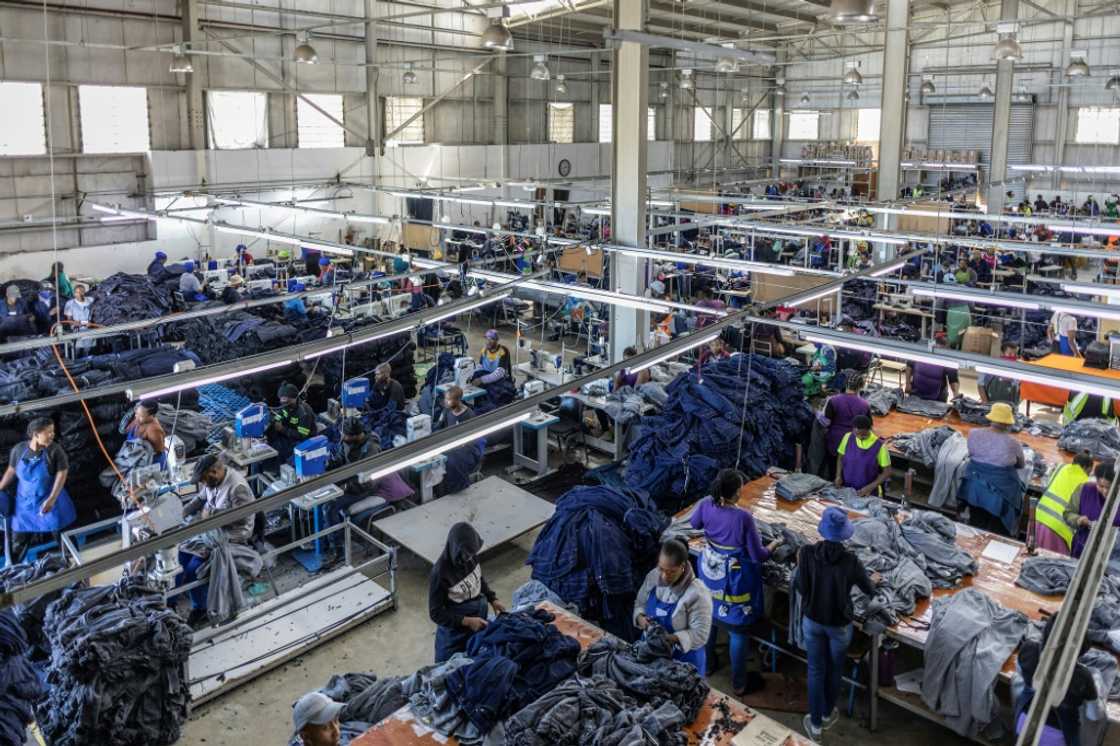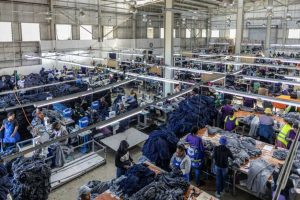
LESOTHO BEARS THE BRUNT AS NEW US TARIFFS SHAKE AFRICA

The small African kingdom of Lesotho said Thursday it would “urgently” send a government delegation to the United States to plead its case after Washington imposed 50-percent tariffs on its imports, the highest for a single nation.
Other African countries hit with President Donald Trump’s “reciprocal tariffs” above the new baseline rate of 10 percent include Madagascar (47 percent), Mauritius (40 percent), Botswana (37 percent), Equatorial Guinea (30 percent) and South Africa (30 percent).
“We need to urgently travel to the US to engage with its executives and plead our case,” Trade Minister Mokhethi Shelile told reporters in Maseru, saying he feared “the immediate closure of factories and job losses”.
Lesotho’s annual gross domestic product of $2 billion is highly reliant on exports of mostly textiles, including jeans.
The clothing industry is the largest employer in the tiny kingdom of around 2.3 million people, which the US administration says is among “the worst offenders” with high tariffs on US imports.
READ ALSO: Canada Imposes 25% Tariff On Some US Auto Imports
“There are 11 factories in the country, most of which export goods to the US and provide employment to 12,000 workers,” Shelile said, adding he had asked factories to continue operating “while we work on solutions” including “diversifying” its trade partnerships.
Lesotho is among the about 30 sub-Saharan African countries that benefit from duty-free access for some products to the US market through the African Growth and Opportunity Act (AGOA) deal.
In its reaction to the tariffs, Madagascar’s government said Thursday it had approached the US embassy to “seek clarification and explore possibilities for adjusting these new tariff barriers”.
The government will “mobilise all diplomatic and commercial levers to obtain a review of these measures”, it said.
South African President Cyril Ramaphosa said the tariffs were “a barrier to trade and shared prosperity”.
They underscore the urgent need for “a new bilateral and mutually beneficial trade agreement”, he said. The United States is South Africa’s second-largest trading partner.
The South African automotive sector, which accounts for 22 percent of exports to the US and also benefited under AGOA, will be among the hardest hit as separate tariffs of 25 percent on foreign-made cars came into effect shortly after Trump’s late Wednesday proclamation.
Kenya, on which Trump only imposed a baseline rate of 10 percent, said the new tariffs presented “both challenges and opportunities”, giving it a “competitive edge” compared to other textile-exporting nations hit with much higher rates.
– End of AGOA? –
The sweeping tariffs added to fears about the future of AGOA which is meant to be up for review in September.
“This must be the end of AGOA,” said South African economist Dawie Roodt. “How can you have tariffs and AGOA? It doesn’t make sense.”
But senior Kenyan foreign affairs official Korir Sing’Oei said that, as AGOA falls under a Congressional framework, the new tariffs should not be applicable until the deal lapses or is repealed the US Congress.
Last month, Lesotho’s King Letsie III told AFP a termination of AGOA could affect up to 40,000 jobs.
South African Minister of Trade Parks Tau said Thursday the intensifying global trade war would affect poorer countries most and “literally devastate” Lesotho.
“We now have to look amongst ourselves and say, within the customs union in Southern Africa, within the Southern African Development Community, and within the region of Africa, how we’re going to respond to these issues,” he told journalists.
“Diversifying our trade is going to be important… enhancing our work on the African continent and collaborating,” he said.
South Africa “must see what trade adjustments might be made to win concessions to ameliorate the situation”, said South Africa-based economics professor Raymond Parsons, adding Pretoria should “prudently seize the moment” to find alternative trading partners.
However, “everybody is going to look for new trading partners,” Roodt said. “Of course, we must try. But it’s going to be tough.”
AFP
